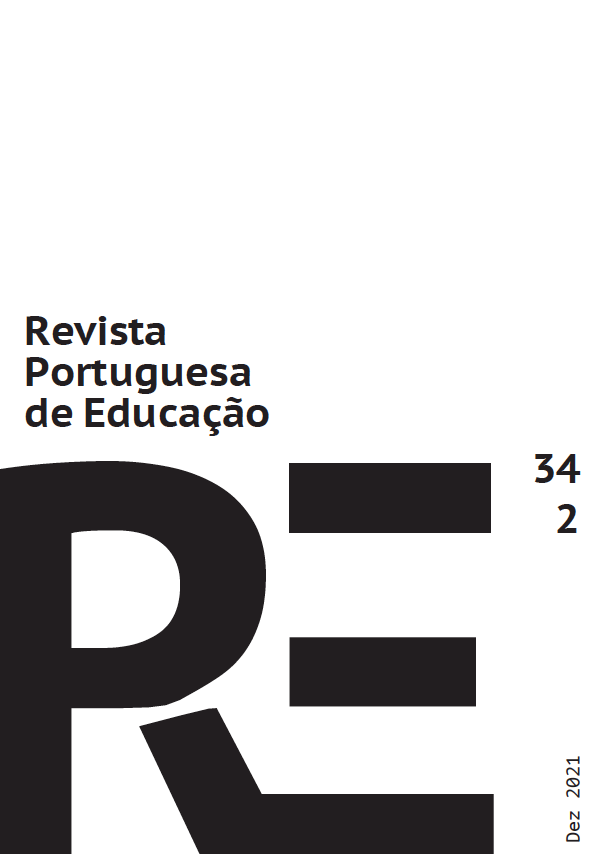Using Linguistically Appropriate Practice: A Guide for Teaching in Multilingual Classrooms
DOI:
https://doi.org/10.21814/rpe.23841Keywords:
Educação Infantil, Multilinguismo, Pedagogia MultilíngueDownloads
References
Bruner, J. (1983). Child’s talk: Learning to use language. W. W. Norton & Company.
Chomsky, N. (1965). Aspects of the theory of syntax. MIT Press.
Chumak-Horbatsch, R. (2012). Linguistically appropriate practice: A guide for working with young immigrant children. University of Toronto Press.
Cummins, J. (1983). Heritage language education: A literature review. Publication Sales, Ontario Institute for Studies in Education.
García, O. (2009). Emergent bilinguals and TESOL: What’s in a name? TESOL Quarterly, 43(2), 322-326. https://doi.org/10.1002/j.1545-7249.2009.tb00172.x
García, O. (2014). Educação, multilinguismo e translanguaging no século XXI. In M. Moreira & K. Zeichner (Orgs.), Filhos de um Deus menor: Diversidade linguística e justiça social na formação de professores (pp. 53-76). Edições Pedago.
García, O. & Wei, L. (2014). Translanguaging: Language, bilingualism and education. Palgrave Macmillan. https://doi.org/10.1057/9781137385765
Hall, S. (2006). A identidade cultural na pós-modernidade (Tradução de T. Silva & G. Louro). DP&A.
Kress, G. (1997). Before writing: Rethinking the paths to literacy. Routledge.
Moll, L., Amanti, C., Neff, D. & Gonzalez, N. (1992). Funds of knowledge for teaching: Using a qualitative approach to connect homes and classrooms. Theory into Practice, 31(2), 132–141. https://doi.org/10.1080/00405849209543534
New London Group (1996). A pedagogy of multiliteracies: Designing social futures. Harvard Educational Review, 66(1), 60-92. https://doi.org/10.17763/haer.66.1.17370n67v22j160u
Reis da Costa, M., Pereira, Í. & Macedo, S. (2020). Initial Literacy Teaching of Indigenous Children: Designing Pedagogy for Urban Schools. In: G. Neokleous, A. Krulatz & R. Farrely (Eds.), Handbook of Research on Cultivating Literacy in Diverse and Multilingual Classrooms (pp. 472-494). IGI Global. https://doi.org/10.4018/978-1-7998-2722-1.ch022
Silva, T. (2000). A produção social da identidade e da diferença. In T. Silva (Org.), Identidade e diferença: a perspectiva dos estudos culturais (pp. 73-102). Vozes.
Soares, M. (2004). Letramento e alfabetização: as muitas facetas. Revista brasileira de educação, 25, 05-17. https://doi.org/10.1590/S1413-24782004000100002
United Nations Children’s Emergency Fund [UNICEF]. (1989). A Convenção sobre os Direitos da Criança. https://www.unicef.org/brazil/convencao-sobre-os-direitos-da-crianca.
Vygotsky, L. (1978). Interaction between learning and development. In M. Cole, V. John-Steiner, S. Scribner & E. Souberman (Eds.), Mind in society: The development of higher psychological processes (Trad. M. Lopez-Morillas). (pp. 79-91). Harvard University Press.
Yip, J. & García, O. (2018). Translinguagens: Recomendações para educadores (Trad. Jefferson Virgílio). Revista Iberoamérica Social IX, 164-176. https://repositorio.ul.pt/bitstream/10451/33560/1/ICS_JVirgilio_TRanslinguages_TRAD.pdf.
Zeichner, K. (2014). Formação de professores para a justiça social. In M. Moreira & K. Zeichner (Orgs.), Filhos de um Deus menor: Diversidade linguística e justiça social na formação de professores (pp. 135-152). Edições Pedago.
Downloads
Published
How to Cite
Issue
Section
License
Copyright (c) 2021 Portuguese Journal of Education

This work is licensed under a Creative Commons Attribution-ShareAlike 4.0 International License.
1. The authors preserve their authorship and grant the Portuguese Journal of Education the right to the first publication. The work is licensed under Creative Commons Attribution License that allows sharing the work with the acknowledgment of initial authorship and publication in this Journal.
2. The authors have the right to take additional contracts separately, for non-exclusive distribution of the published version of their work (e.g. to deposit in an institutional repository or as a book chapter), acknowledging the initial authorship and publication in this Journal.
3. The authors have the permission and are stimulated to post their work online (e.g. in an institutional repository or on their personal website). They can do this at any phase of the editorial process, as it may generate productive changes, as well as increase impact and article citation (see The Open Citation Project).
The work is licensed under Attribution-ShareAlike 4.0 International (CC BY-SA 4.0)




















